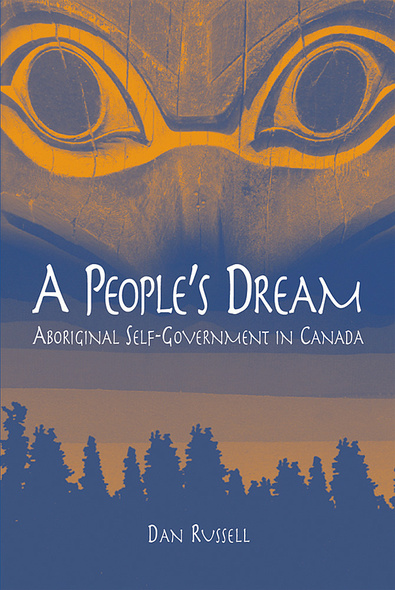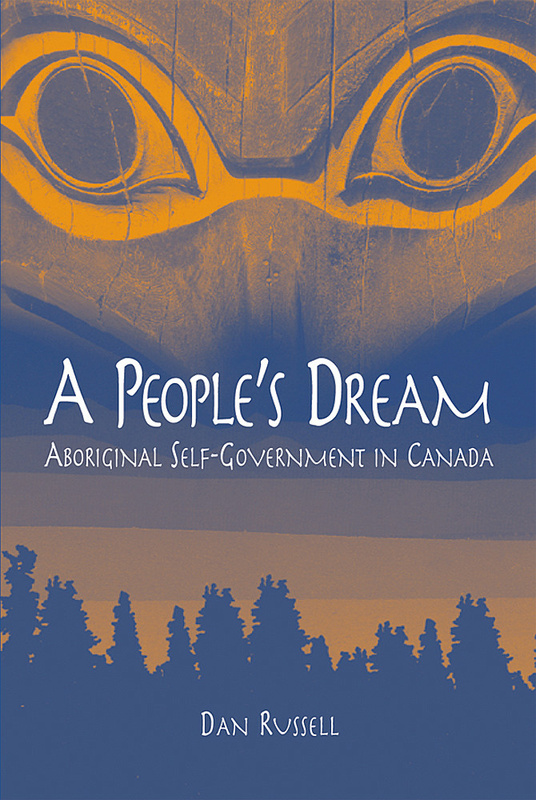In this provocative and passionate book, Dan Russell outlines the history of Aboriginal self-government in Canada. He compares it to that of the United States, where, for over 150 years, tribes have practised self-government -- domestic dependent nationhood. Russell provides specific examples of how those institutions of government operate, and eloquently explains, from an Aboriginal perspective, what his people hope to achieve through self-governing authority.
After describing rights theory, Russell locates Aboriginal self-government as a cultural right, and illustrates how the entitlements of Aboriginal women, an Aboriginal ethic, and collective rights, which are protected by self-governance, may conflict with the Canadian Charter of Rights.
A People's Dream is a persuasive examination of how treaty-making in Canada, in particular the 1998 Nisga’a Treaty, has been used as a tool for achieving self-government, but why this approach should be avoided. As well, Russell examines recommendations by the Royal Commission on Aboriginal Peoples and provides an enlightening comparison of those recommendations with the terms of the 1992 Charlottetown Accord.
Preface
Acknowledgments
Introduction
1 The Self-Government Ideal: A Recent Concept
2 The American Tribal Government Experience: Lessons for Canada
3 Entrenching Self-Government: The Treaty Option
4 Entrenching Self-Government: The “Principled Approach”
5 Historical Aboriginal Collective Rights
6 Aboriginal Values versus Charter Rights
7 A Metaphorical Charter: An Aboriginal Response
8 The Royal Commission on Aboriginal Peoples and Self-Government: Just Another Lump of Coal
9 The Future of Self-Government: Building Trust and Confidence Notes
Selected Bibliography
Index






